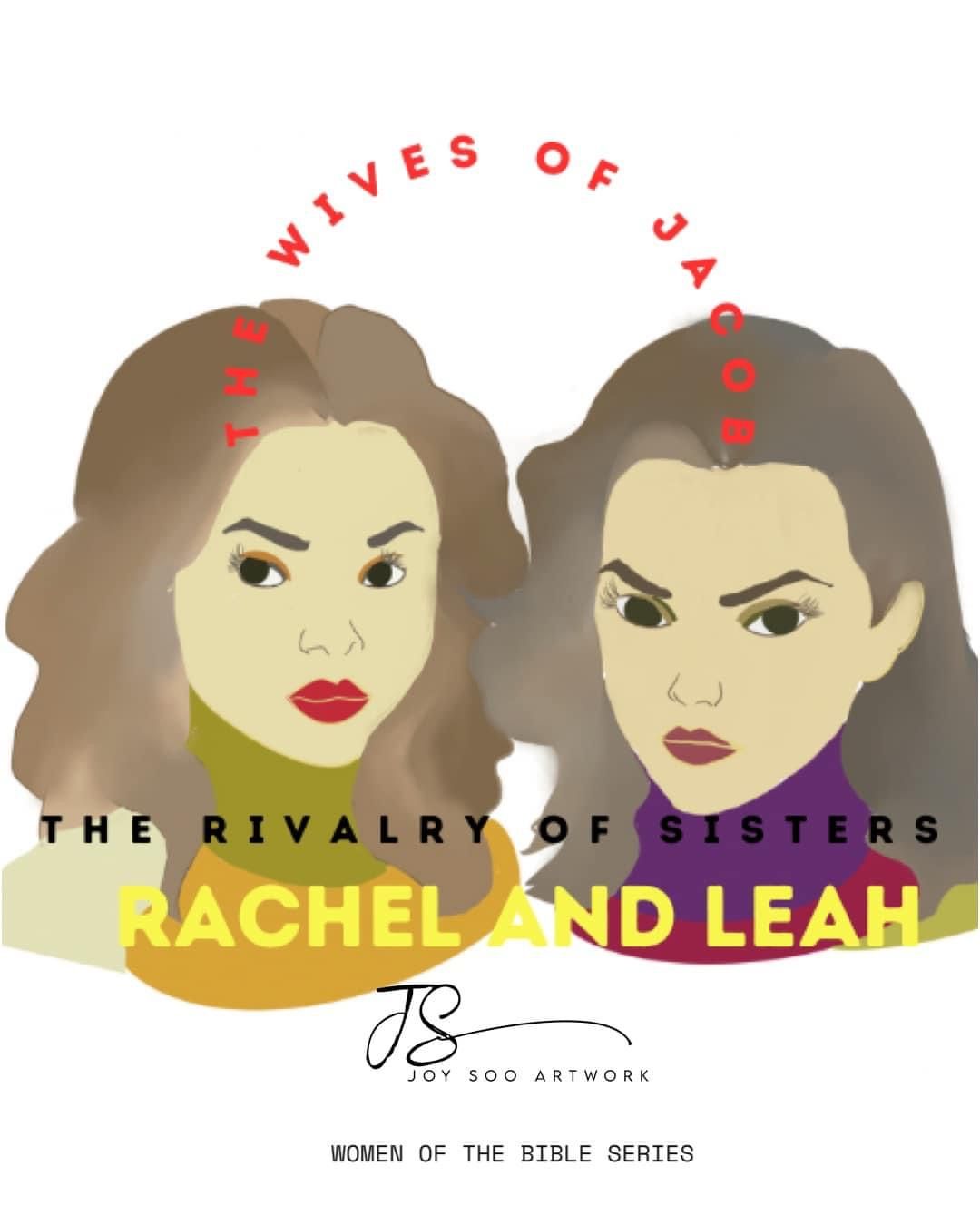
RACHEL AND LEAH, The wives of Jacob
The story of Rachel and Leah unfolds in Genesis chapters 29 through 35.
The story begins when Jacob, fleeing from his brother Esau, travels to Haran to seek refuge with his uncle Laban and to find a wife among his relatives. Upon arrival, Jacob meets Rachel, Laban's younger daughter, at a well and is instantly captivated by her beauty. He offers to work for Laban for seven years in exchange for Rachel's hand in marriage. However, on the wedding night, Laban deceives Jacob by substituting Leah, his elder daughter, as the bride. Unbeknownst to Jacob, he consummates the marriage with Leah.
When Jacob discovers the deception the following morning, he confronts Laban, who argues that it is not customary to marry off the younger daughter before the elder. Nonetheless, Laban agrees to give Rachel to Jacob in exchange for another seven years of service, and Jacob consents, marrying Rachel a week later.
This arrangement sets the stage for a complex and competitive relationship between the sisters. Leah, who is described as having "weak eyes," contrasts with the beautiful Rachel, and both vie for Jacob's affections. God sees that Leah is unloved and blesses her with children. Leah gives birth to four sons: Reuben, Simeon, Levi, and Judah.
Meanwhile, Rachel struggles with infertility and becomes envious of her sister's ability to bear children. In desperation, Rachel offers her maidservant Bilhah to Jacob as a surrogate. Bilhah bears two sons: Dan and Naphtali. Leah, seeing that she has temporarily ceased bearing children, gives her maidservant Zilpah to Jacob, who bears two sons: Gad and Asher.
Leah later becomes fertile again and gives birth to two more sons, Issachar and Zebulun, and a daughter, Dinah. Eventually, God remembers Rachel, and she conceives, giving birth to Joseph. Later, she bears another son, Benjamin, but tragically dies during childbirth.
Together, the sons of Jacob by Leah, Rachel, Bilhah, and Zilpah become the patriarchs of the twelve tribes of Israel. These tribes form the foundation of the Israelite nation, each bearing the name of one of Jacob's sons.
DISCUSSION STARTERS
How does the theme of faith manifest in the lives of Rachel and Leah, particularly in their struggles with fertility and their desire for Jacob's love?
What insights can be drawn from their story about the complexities of polygamous relationships?
In what ways do Rachel and Leah demonstrate resilience, and how can these examples inspire women facing challenges today?
How do Rachel and Leah's struggles with self-worth and identity resonate with challenges faced by women today?
PRAYER
Dear God,
We come before You with hearts open, seeking wisdom and strength as we reflect on the lives of Leah and Rachel. Their stories, woven into the fabric of our faith, remind us of the complexities of life, love, and family.
Lord, like Leah, help us to find our worth not in the eyes of others, but in Your unwavering love and grace. When we feel unseen or unloved, remind us that we are cherished by You and that our contributions are valued and meaningful.
Father, as Rachel longed for children and struggled with envy, teach us to wait on You with hope and faith. In our moments of longing or comparison, fill our hearts with gratitude for what we have and the courage to support and uplift those around us.
Guide us to navigate our relationships with love and understanding, as Rachel and Leah did within their family. Help us to build bridges where there are divides and to foster peace and harmony in our homes and communities.
We ask for Your continued guidance, that we may grow in wisdom and love, and that our lives may reflect Your glory.
In Your holy name, we pray,
Amen.